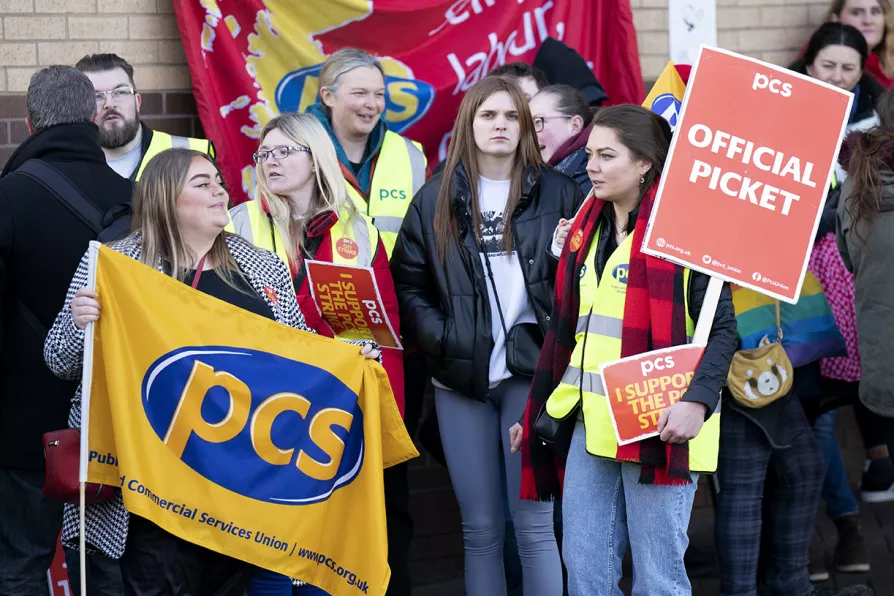The Mandelson scandal reveals a political settlement in which democratic choice is curtailed and the power of markets eclipses the will of voters – only the left can challenge this, writes JON TRICKETT MP
Women are at the cutting edge of trade union struggle
In my union PCS, we know from experience that women are the first line of defence during this ongoing period of attacks from the government and employers on our living standards, writes LYNN HENDERSON

 Members of the PCS union on the picket line outside the Passport Office in Glasgow
Members of the PCS union on the picket line outside the Passport Office in Glasgow
SOLIDARITY greetings to Andrea Bradley, chair of the Scottish TUC women’s committee, and all my trade union sisters attending this year’s STUC women’s conference.
You meet at a time when building collective power and support has never been more important for women.
PCS is a majority-female union and as our long-standing general secretary Mark Serwotka prepares for retirement at the end of the year, our members are about to elect his replacement.
Similar stories

Working-class women lead the fight for fair work and equitable pay and against sexual harassment, the rise of the far right and years of failed austerity policies, writes ROZ FOYER

Public and Commercial Services union leader FRAN HEATHCOTE warns the Chancellor not to take an axe to the Civil Service – and points to measures that would genuinely improve the public sector

Persistent inequality for women shows we still have a long way to go, but Wales TUC leader SHAVANAH TAJ is confident we can build a fairer country when we work together











